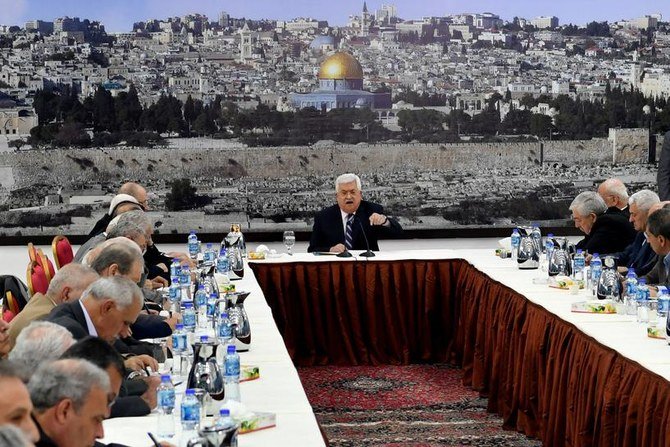
- ARAB NEWS
- 15 Jul 2025

Palestinians in the West Bank and Gaza Strip on Saturday edged closer to the May 22 legislative elections — the first in 15 years — as the Central Elections Committee began receiving applications for the registration of lists contesting the 132-seat legislature. The Palestinian factions last week signed a “code of honor” pledging to respect the election results and committing to the elections law in all transparency and fairness. The two main players are Fatah and Hamas; the former is in control of the West Bank and the latter the Gaza Strip.
The last time fair elections were held, in 2005, Hamas won a landslide victory. Palestinian Authority (PA) President Mahmoud Abbas was forced to name Ismail Haniyeh as prime minister, only to sack him a few months later, triggering a rebellion by Hamas that saw the group take over Gaza after a bloody confrontation with Fatah and the PA. Many attempts to end the rebellion and reconcile the parties have failed. Even as Hamas says it is ready to contest the upcoming elections, it is yet to commit to ending its grip over Gaza.
Abbas, who rules by decree, was forced to call for legislative elections — which will be followed by a presidential poll in July — by European countries, which are the main financial sponsors of the PA.
The move aims at renewing the legitimacy of Palestinian institutions ahead of a possible resumption of peace talks with Israel. Abbas has issued a number of controversial decrees in recent months, which critics say constrict the role of the judiciary and prevent younger activists from running.
Fearing a sweep by Hamas candidates, Abbas considered forming a joint list between Hamas and Fatah to guarantee a majority in the next legislature. But pressure from Israel, and possibly the US, has derailed this unusual plan. Without a commitment by Hamas to hand over power to the PA, a joint list would end up cementing the political and geographical division of the Palestinians. It would most likely legitimize a new duality that would weaken the Palestinian cause. Such a joint list would lead to a power-sharing deal in the next Palestinian Cabinet — anathema for Israel and the US, as both label Hamas a terrorist group.
But what the Palestinian critics of the election saga fear most is that it will only lead to normalizing occupation and give a new lease of life to the Oslo Accords. They say that it is not normal for people under occupation to hold elections where the occupier controls the land and can thwart the electoral process and its outcome. Israel arrested a number of lawmakers in the previous legislature, underlining the fact that it has the final say and that no elected official has immunity.
Furthermore, the critics say that, after more than 25 years, the Oslo Accords have proven to be an utter failure. Israel has reneged on most of its commitments and continues to expand settlements, demolish Palestinian houses, allow settlers to intimidate Palestinians on a daily basis, and breach areas under PA control with impunity. Israel is yet to commit to allowing the Palestinians of East Jerusalem to vote.
Meanwhile, Fatah, which is the largest Palestinian faction, is riddled with internal divisions. Young Palestinians, who make up the majority of the population, are fed up with a ruling class whose average age is about 70. Within Fatah, there have been attempts to name Marwan Barghouti, who is serving a life sentence in an Israeli jail, as the group’s presidential candidate. Long-time Fatah leader and friend of Barghouti, Nasser Al-Qidwa, was this month expelled by Abbas for deciding to form his own list to contest the elections.
Despite clearing the way to hold the elections, some observers say that 85-year-old Abbas may still postpone the poll if he feels that Fatah may not win a majority in the next legislature. It is also unlikely that the presidential election will be held on time.
Critics of the election saga fear it will only lead to normalizing occupation and give a new lease of life to the Oslo Accords.
Osama Al-Sharif
The Palestinian elections will be held two months after Israelis go to the polls for the fourth time in two years. However, the occupation and the fate of the peace process are not a priority for Israeli voters and candidates. The outcome of the Israeli poll will not change the reality of occupation for more than 5 million Palestinians. Assuming that the Palestinian elections will be free and fair, they could turn out to be the most consequential event since the signing of the Oslo Accords. Or, ironically, they could cement the sad political reality that Palestinians have faced since 1993.